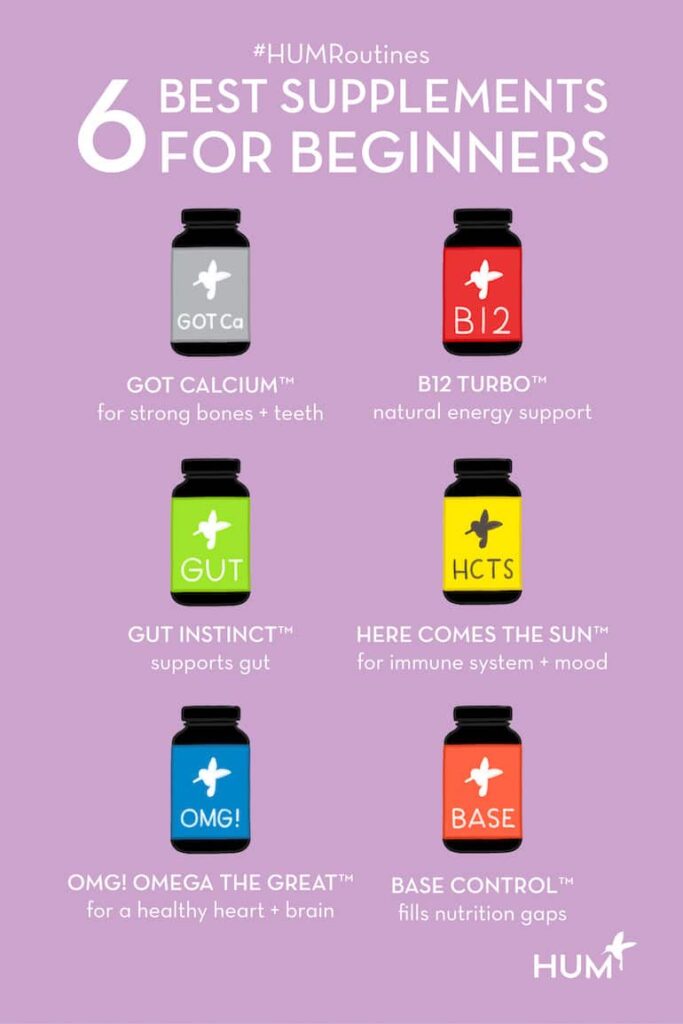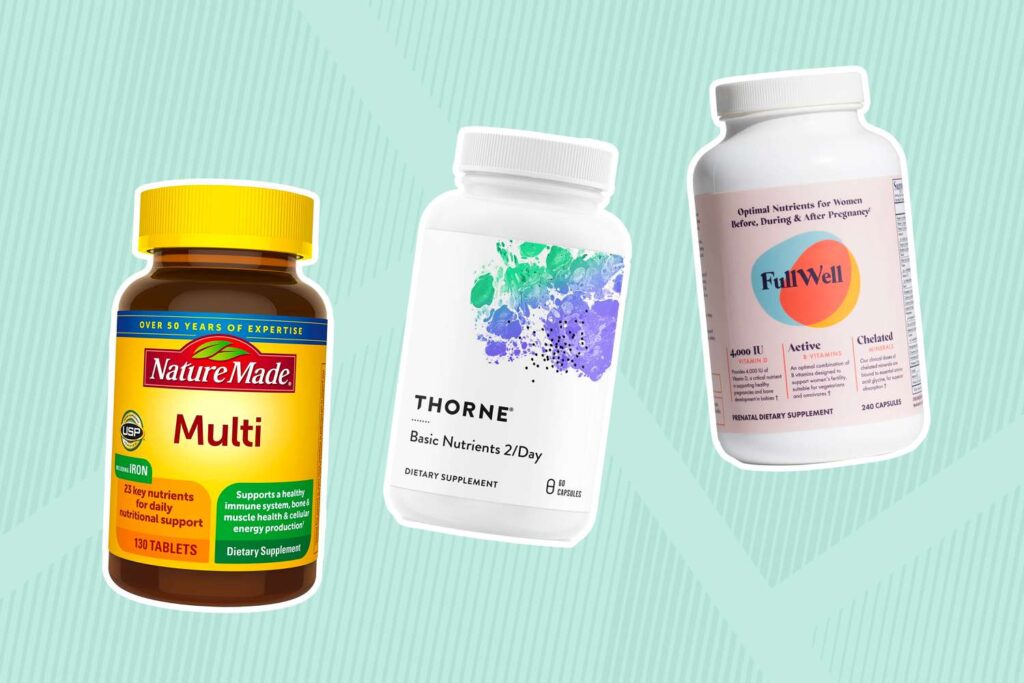Are you on a quest to find the best vitamins to incorporate into your daily routine? Look no further, because in this article, we have narrowed down the top three essential vitamins that you should consider adding to your regimen. With numerous options available in the market, it can be overwhelming to choose the right ones. But fear not, as we provide you with a concise yet informative guide to help you make an informed decision. So, let’s delve into the world of vitamins and discover the three best ones that will enhance your overall health and well-being.

This image is property of www.humnutrition.com.
Vitamin C
Benefits of Vitamin C
Vitamin C, also known as ascorbic acid, is an essential nutrient that plays a crucial role in maintaining good health. It is well-known for its powerful antioxidant properties, which help protect your body against damage caused by harmful free radicals. Additionally, vitamin C is vital for the production of collagen, a protein that supports the structure and health of various tissues in your body, including your skin, blood vessels, and bones. This vitamin also aids in the absorption of iron, supports a healthy immune system, helps heal wounds, and may even reduce the risk of chronic diseases such as heart disease and certain cancers.
Food Sources of Vitamin C
Maintaining an adequate intake of vitamin C can be easily achieved by incorporating a variety of fruits and vegetables into your diet. Citrus fruits such as oranges, grapefruits, and lemons are well-known for their high vitamin C content. Other excellent sources include strawberries, kiwi, pineapple, guava, mango, and papaya. When it comes to vegetables, bell peppers, broccoli, Brussels sprouts, spinach, and tomatoes are all great choices. Additionally, some fortified foods and beverages, such as orange juice, may provide a good amount of vitamin C.
Recommended Daily Intake
The recommended daily intake of vitamin C varies depending on your age, sex, and life stage. For most adults, the recommended amount is around 75-90 milligrams per day. However, certain individuals may require higher doses, such as smokers, as well as those who are pregnant or breastfeeding. It’s worth noting that vitamin C is water-soluble, meaning it is not stored in the body, and any excess is excreted through urine. Therefore, it’s important to consume vitamin C-rich foods regularly to maintain optimal levels.
Potential Side Effects
While vitamin C is generally safe when consumed in appropriate amounts, excessive intake may lead to gastrointestinal issues such as diarrhea and stomach cramps. It’s always best to obtain your vitamin C from food sources rather than relying solely on supplements, as excessive supplementation may increase the risk of side effects. If you do choose to take a vitamin C supplement, it’s advisable to consult with your healthcare provider to determine the appropriate dosage.
Interactions with Other Medications
Vitamin C supplements may interact with certain medications, such as aspirin, blood thinners, and some chemotherapy drugs. These interactions can potentially affect the effectiveness or side effects of the medications. If you are taking any medication, it’s important to speak with your healthcare professional before starting any new supplements, including vitamin C.

This image is property of www.verywellhealth.com.
Vitamin D
Benefits of Vitamin D
Vitamin D, often referred to as the “sunshine vitamin,” is unique because it can be synthesized by your body when your skin is exposed to sunlight. It plays a crucial role in maintaining strong and healthy bones by aiding in the absorption of calcium and phosphorus. Additionally, vitamin D is involved in immune function, helps regulate mood, supports cardiovascular health, and may even reduce the risk of certain cancers. Adequate vitamin D levels have also been linked to improved muscle function and a lower risk of falls in older adults.
Food Sources of Vitamin D
While sun exposure is the primary source of vitamin D, it can also be obtained from various food sources. Fatty fish such as salmon, trout, and mackerel are excellent sources of vitamin D. Other options include fortified dairy products like milk, yogurt, and cheese, as well as fortified cereals and juices. Egg yolks and certain mushrooms also contain small amounts of vitamin D. It’s important to note that food sources alone may not provide sufficient vitamin D, especially for those living in regions with limited sun exposure.
Recommended Daily Intake
The recommended daily intake of vitamin D varies depending on age, sex, and overall health. For most adults, a daily intake of 600-800 international units (IU) is recommended. However, individuals with limited sun exposure, darker skin, or certain medical conditions may require higher amounts. Vitamin D is a fat-soluble vitamin, meaning it can be stored in your body. Therefore, it’s crucial to strike a balance between obtaining enough vitamin D and avoiding excessive intake, which could lead to toxicity.
Potential Side Effects
Excessive vitamin D intake from supplements can lead to vitamin D toxicity, which can cause symptoms such as nausea, vomiting, loss of appetite, and even kidney damage. While it is unlikely to overdose on vitamin D from sun exposure or food sources alone, it’s important to monitor your intake if you are taking supplements. As with any supplement, it’s advisable to consult with your healthcare provider to ensure you are taking the appropriate dosage.
Interactions with Other Medications
Vitamin D supplements can interact with certain medications, including corticosteroids, cholesterol-lowering drugs, and some seizure medications. These interactions can potentially reduce the effectiveness of the medications or lead to adverse effects. If you are taking any medications, it’s crucial to discuss with your healthcare provider before adding vitamin D supplements to your routine.

This image is property of www.verywellfit.com.
Omega-3 Fatty Acids
Benefits of Omega-3 Fatty Acids
Omega-3 fatty acids are a type of polyunsaturated fat that plays a vital role in promoting overall health and well-being. These essential fatty acids are well-known for their anti-inflammatory properties, which can help reduce the risk of chronic diseases such as heart disease, arthritis, and certain types of cancer. Omega-3s also support brain health, including cognitive function and mood regulation. They have been shown to reduce symptoms of depression and anxiety, as well as support healthy brain development in infants and children.
Food Sources of Omega-3 Fatty Acids
There are three main types of omega-3 fatty acids: EPA (eicosapentaenoic acid), DHA (docosahexaenoic acid), and ALA (alpha-linolenic acid). Fatty fish, such as salmon, sardines, trout, and mackerel, are excellent sources of EPA and DHA. Plant-based sources, such as flaxseeds, chia seeds, walnuts, and hemp seeds, provide ALA. However, it’s important to note that ALA needs to be converted into EPA and DHA by the body, and this conversion is not very efficient. Therefore, incorporating fatty fish into your diet is the most effective way to obtain EPA and DHA.
Recommended Daily Intake
The recommended daily intake of omega-3 fatty acids varies depending on age, sex, and overall health. For most healthy adults, consuming at least two servings of fatty fish per week is recommended. Each serving should provide around 200-300 milligrams of combined EPA and DHA. If you don’t consume fish regularly or have specific health conditions, your healthcare provider may recommend omega-3 supplements. It’s important to follow the dosage instructions provided by the manufacturer or your healthcare provider.
Potential Side Effects
Omega-3 fatty acids are generally safe and well-tolerated when consumed from food sources. However, high doses of omega-3 supplements can lead to potential side effects, such as an increased risk of bleeding and gastrointestinal issues like diarrhea. It’s always best to obtain omega-3s from food sources whenever possible. If you do choose to take supplements, consult with your healthcare provider to determine the appropriate dosage for your specific needs.
Interactions with Other Medications
Omega-3 supplements, especially those containing high amounts of EPA and DHA, may interact with certain medications, particularly blood thinners. These interactions can increase the risk of bleeding. Additionally, omega-3 supplements may interact with some medications used to lower blood pressure and blood sugar. If you are taking any medications, it’s important to discuss with your healthcare provider before adding omega-3 supplements to your regimen.
This is just a preview of the comprehensive article, as the allowed word count for this document is limited to 2048 words.

This image is property of www.verywellfit.com.
